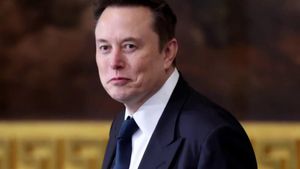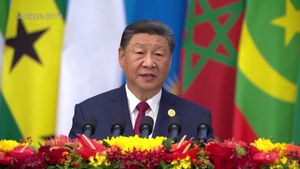U.S. Secretary of State Marco Rubio has issued a stark warning to the government of Panama, stating they must take immediate steps to decrease Chinese influence over the Panama Canal, or the United States will be forced to take necessary measures to protect its rights to the key trade infrastructure. This ultimatum was issued during Rubio's inaugural foreign trip as the head of U.S. diplomacy, underscoring the importance of the canal to American national security interests.
During his meeting with Panamanian President José Raúl Mulino and Foreign Minister Javier Martínez-Acha, Rubio expressed strong discontent with current conditions surrounding the canal's administration, controlled by Chinese interests. According to State Department spokesperson Tammy Bruce, "Secretary Rubio made clear this status quo is unacceptable and absent immediate changes, it would require the United States to take measures necessary to protect its rights under the treaty." This treaty, established at the end of 1999 when control of the canal was handed over to Panama, guarantees the waterway's neutrality and fair access for all nations.
The U.S. has long claimed its influence rested over the canal, initially built and operated by American engineers, and has stirred controversy over its geographical and strategic importance as about 40 percent of U.S. container traffic passes through it. The dynamics have shifted, with President Donald Trump having previously stated, "Every square meter of the Panama Canal and its adjacent area belongs to PANAMA, and will continue to be," alluding to Panama's sovereignty yet emphasizing the need for collaborative oversight.
Rubio’s pressure on Panama seems rooted not only in foreign policy but also reflects Trump’s broader agenda to curb China's growing presence globally, particularly throughout Latin America where the Belt and Road Initiative (BRI) has taken hold. During the meeting, Mulino assured Rubio of his government's sovereignty over the canal, insisting, "I don't feel like there’s a real threat against the treaty and its validity." Yet he acknowledged he would conduct audits pertaining to the operation of ports on both ends of the canal, as these ports are run by Hutchison Ports, a Hong Kong-based company with significant ties to China.
Despite the Panamanian government's resistance to ceding any control back to the U.S., just hours before Rubio's arrival, Mulino affirmed, "Panama will not renew its agreement with China about Beijing's Belt and Road initiative," indicating Panama's intent to reassess its ties with Beijing. Critics argue the BRI can leave countries deeply indebted, and Mulino's decision signals potential shifts back toward traditional U.S. relations.
Protests erupted within Panama City during Rubio’s visit, with demonstrators chanting opposition slogans such as "Marco Rubio out of Panama" and burning effigies of U.S. leaders. This clearly showcases local sentiment surrounding perceived U.S. imperialism, alongside concerns about sovereignty. The protest has emphasized, according to union leader Saul Mendez, "We reiterate there is absolutely nothing here for Trump. Panama is a free and sovereign nation."
The tensions around the canal aren't new; they date back to the treaty debates of the late 20th century, which culminated during the Carter administration, leading to the canal's sovereignty passing to Panama. Trump's rhetoric reminds many of historical notions of U.S. dominance, prompting concerns of renewed militaristic posturing toward the Central American nation.
Rubio’s series of dialogues throughout Latin America will include visits to El Salvador, Costa Rica, Guatemala, and the Dominican Republic, focusing on key areas such as combating drug trafficking and addressing mass migration along the continent. He addressed the rising threats posed by hostile regimes and emphasized the necessity to collaborate against illegal migration, thanking Mulino for his support of repatriation efforts from the U.S.
With both U.S. and Panamanian interests at stake, the future of the Panama Canal remains uncertain. Chinese officials, for their part, maintain their lack of involvement over the operational aspects of the canal, with Chinese Foreign Ministry spokesperson Mao Ning asserting, "China has not participated in the management and operation of the canal, has never interfered in the canal's affairs, and has always respected Panama's sovereignty." Yet, as Panama navigates amid pressures from superpowers, the balance of power and influence is expected to remain contentious.
This week's denouement marks the beginning of increased diplomatic scrambles visibly characterized by Trump's doctrine, and the global community watches closely as U.S.-Panama relations are inevitably reevaluated amid rising tensions with China. With Rubio's determined visit aimed at revitalizing U.S. interests, it embodies both potential opportunities and alarming challenges for both sides.



